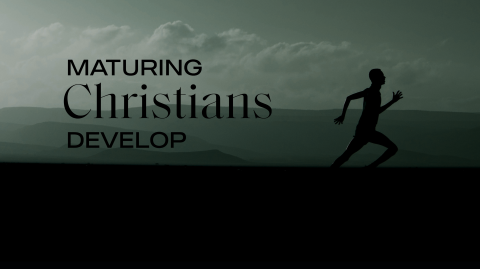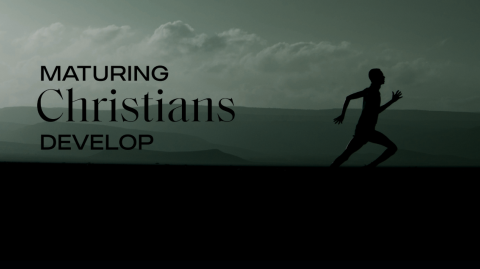Then he said to Moses, "Come up to the LORD, you and Aaron, Nadab and Abihu, and seventy of the elders of Israel. You are to worship at a distance, but Moses alone is to approach the LORD; the others must not come near. And the people may not come up with him." - Exodus 24:1-2
Perhaps these words sum up Old Testament worship as well as any: “You are to worship at a distance.” The people of God were commanded to worship and serve the Lord their God. They were to offer animal sacrifice as an aroma pleasing to the Lord, as both Abel and Noah did; they were to set up altars as Abraham did in the Promised Land (Gen. 12:8), and “call on the name of the Lord.” They were given visions of angels, as Jacob was in Genesis 28, and some select ones like Moses had special experiences of the presence of God (Ex. 33:15-23). The people of God were to shout for joy at God’s mighty acts, they were to pray and offer their various prescribed offerings. But the center of the Old Testament system of worship was this: “You are to worship at a distance.”
The distance was established by the Word of God Himself, most clearly in the Law of Moses given at Sinai. God had commanded the Israelites to consecrate themselves and to gather around the sacred mountain to hear the words of God Almighty (Exodus 19). However, God also commanded that a barrier, an obstacle, a fence, a boundary line be clearly marked around the sacred mountain, and the dreadful command was spread through the assembly: “Whoever touches the mountain must surely be put to death” (Ex. 19:12). The lesson was clear right from the start: you are not welcome to come freely into my presence whenever you wish.
This distance between God and people was codified and established for generations when God gave Moses the regulations for worship. These included the Tabernacle, the place where God’s holy Ark of the Covenant would be placed. The Tabernacle was a visual reminder of the separation between God and His sinful people. The system of curtains and courtyards served to keep people out. So also was the arrangement of the “Most Holy Place” separated from the “Holy Place.” For God commanded concerning the “Most Holy Place” that only the High Priest (Aaron or one of his descendents) was permitted to enter, and that only once per year, with blood as an atonement for sin. Even Aaron was restricted from free access: “The Lord said to Moses: ‘Tell your brother Aaron not to come whenever he chooses into the Most Holy Place behind the curtain in front of the atonement cover on the ark, or else he will die, because I appear in the cloud over the atonement cover’” (Lev. 16:2).
What was the reason for this distance? Simply put, the issue was sin! Right from the beginning of the history of humanity as a sinful race, God set up this barrier. After Adam and Eve were evicted from the Garden of Eden, God set up warrior angels with a flaming sword flashing back and forth to guard the entrance to the Tree of Life (Gen. 3:24). The message of all of this is clear: God is holy and can in no way have fellowship with our wretched sinful race unless the sin is atoned for, effectively covered in some way.
"This picture was fulfilled when Christ offered Himself once for all to God in the true heavenly temple, and opened for us an eternal passageway into the very presence of God by His body and His blood (Heb. 10:19-22), and with that New Covenant comes a command from God 'Let us draw near to God!!!'"
That Aaron was allowed symbolically into the Most Holy Place at all carrying the blood of an atoning sacrifice was cause for great hope. This picture was fulfilled when Christ offered Himself once for all to God in the true heavenly temple, and opened for us an eternal passageway into the very presence of God by His body and His blood (Heb. 10:19-22), and with that New Covenant comes a command from God “Let us draw near to God!!!” The incredible bliss and joy of this achievement was set up nobly by the restrictions of the Old Covenant. Without the fifteen centuries of restrictions our sin so richly earned, we would not have a proper sense of eternal gratitude for the achievement of Christ in opening up a way of access into the very presence of God. Nor would we rightly value the terrifying holiness of our Creator-King, nor would we rightly hate and detest forever the sin which separated us from Him. O blessed prophetic restrictions, and O far more blessed fulfillment in the blood of our Savior, Jesus Christ!!



